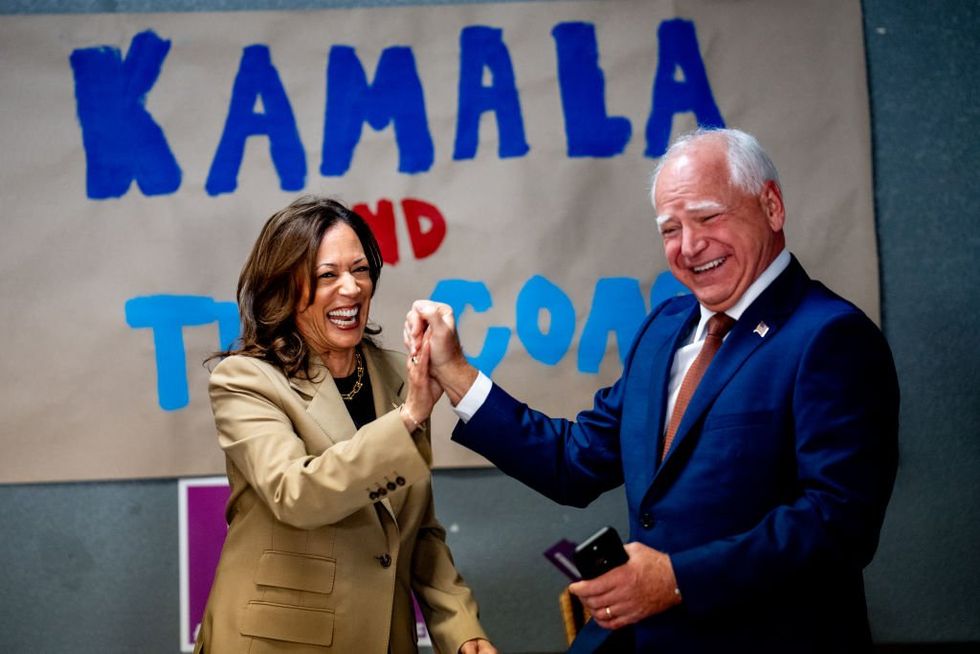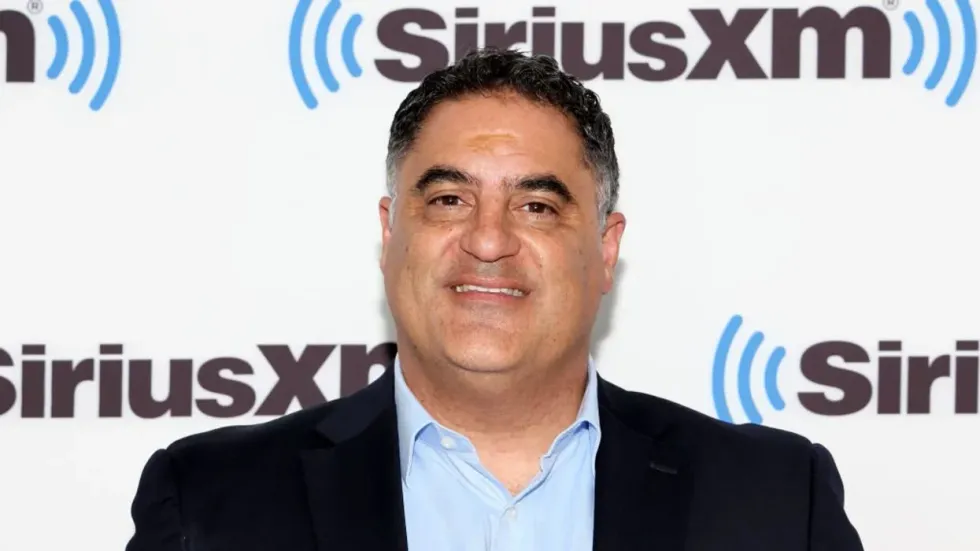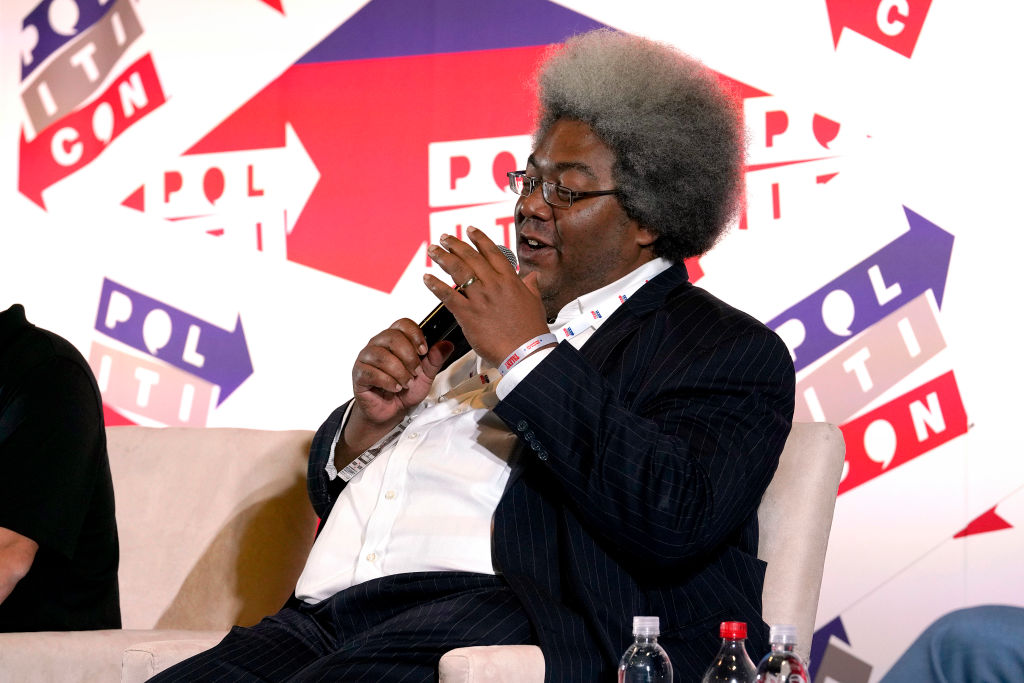Kamala Harris' wealth redistribution plans could prove both costly and ineffective
The Harris campaign revealed this week that if the Democratic vice president and her running mate — who apparently thinks that communism means that "everyone is the same and everyone shares" — win in November, then they will slap Americans with various new taxes, including a tax on unrealized gains. Despite claiming to be fiscally responsible, Harris and Walz would simultaneously redistribute American wealth in a manner some economists have indicated will exacerbate the very problems they are supposedly intended to remedy. The official 2024 Democratic Party platform was released Monday, revealing what former presidential candidate Joe Biden apparently planned to do if afforded another term. It turns out that just as Kamala Harris was ready to adopt Biden's candidacy and his committed delegates, she is now also ready to embrace many of the policy proposals attributed to him in the document. Those proposals include raising the federal corporate tax rate from 21% to 28%. Communist China's federal corporate income tax rate is, by way of comparison, reportedly 25%. Harris campaign spokesperson James Singer confirmed to Reuters that Harris plans on raising the rate, claiming it would be part of a "fiscally responsible way to put money back in the pockets of working people and ensure billionaires and big corporations pay their fair share." President Donald Trump and congressional Republicans previously cut the corporate tax rate from 35% to 21% via the Tax Cuts and Jobs Act of 2017. When ratifying the bill, Trump noted, "It's going to be a tremendous thing for the American people. It's going to be fantastic for the economy. It's going to keep companies from leaving our shores." A 2017 Tax Foundation study indicated that "empirical evidence seems to support earlier theoretical analysis that domestic U.S. labor bears the largest portion of the burden of the U.S. corporate income tax." "The share of the burden falling on labor is routinely found to be between 50 percent and 100 percent, with 70 percent or higher the most likely outcome," said the study. "As the tax reduces investment, productivity, and wages, the dollar amount of the cost to labor may exceed the revenue raised by the tax by a wide margin." Extra to adversely impacting labor, this Harris tax hike would also adversely impact the stock market. Strategists at Goldman Sachs told Reuters that each percentage point change in the corporate tax rate could shift S&P 500 earnings by "slightly less than 1%." Peter Tuz, president of Chase Investment Counsel, said, "Anything that reduces earnings should ... have a negative impact on the stock market." Harris — who, as vice president, oversaw the U.S. national debt topping $35 trillion and championed various handouts along the way, including the taxpayer-funded subsidization of college education for hundreds of thousands of student debtors — has other taxes planned for 2025, around the same time various other Trump-era tax cuts are set to expire. 'The taxing of unrealized gains, no matter what the level of wealth, will drive assets, jobs and companies away from the United States.' Earlier this year, the Biden-Harris administration proposed in its FY 2025 budget a 44.6% capital gains rate, reported Moodys Private Client. This increase — from the current rate of 20% left over from the Trump tax reform — would constitute the highest federal capital gains rate in American history. The Harris campaign told the Committee for a Responsible Federal Budget that she "continues to support all of the revenue-raising provisions in the President's FY 2025 budget." According to Americans for Tax Reform, the Harris-endorsed budget proposal also calls for a yearly 25% minimum tax on unrealized gains. While initially, this would target only the sliver minority of individuals with income and assets exceeding $100 million, critics suspect this "unconstitutional wealth tax" might ultimately be expanded to millions of Americans. "Capital gains taxes should only be paid when a gain is realized. Harris's wealth tax would break with current tax policy and impose tax Americans based on the value of an asset on a particular arbitrary date," stated Americans for Tax Reform. "This unprecedented tax would give even more power to the IRS, encourage taxpayers to move assets overseas, and will only expand to hit millions of Americans over time." TheStreet's Bob Byrne expressed similar concerns, noting, "While this only impacts a handful of people, and the measure is highly unlikely to pass, even the concept is worrisome. The taxing of unrealized gains, no matter what the level of wealth, will drive assets, jobs and companies away from the United States." Harris has provided a few indications of how she might redistribute some of this wealth. Harris intends to have taxpayers inadvertently provide a $25,000 handout to first-time and certain other prospective homeowners. Some economists suspect this is an


The Harris campaign revealed this week that if the Democratic vice president and her running mate — who apparently thinks that communism means that "everyone is the same and everyone shares" — win in November, then they will slap Americans with various new taxes, including a tax on unrealized gains.
Despite claiming to be fiscally responsible, Harris and Walz would simultaneously redistribute American wealth in a manner some economists have indicated will exacerbate the very problems they are supposedly intended to remedy.
The official 2024 Democratic Party platform was released Monday, revealing what former presidential candidate Joe Biden apparently planned to do if afforded another term. It turns out that just as Kamala Harris was ready to adopt Biden's candidacy and his committed delegates, she is now also ready to embrace many of the policy proposals attributed to him in the document.
Those proposals include raising the federal corporate tax rate from 21% to 28%.
Communist China's federal corporate income tax rate is, by way of comparison, reportedly 25%.
Harris campaign spokesperson James Singer confirmed to Reuters that Harris plans on raising the rate, claiming it would be part of a "fiscally responsible way to put money back in the pockets of working people and ensure billionaires and big corporations pay their fair share."
President Donald Trump and congressional Republicans previously cut the corporate tax rate from 35% to 21% via the Tax Cuts and Jobs Act of 2017. When ratifying the bill, Trump noted, "It's going to be a tremendous thing for the American people. It's going to be fantastic for the economy. It's going to keep companies from leaving our shores."
A 2017 Tax Foundation study indicated that "empirical evidence seems to support earlier theoretical analysis that domestic U.S. labor bears the largest portion of the burden of the U.S. corporate income tax."
"The share of the burden falling on labor is routinely found to be between 50 percent and 100 percent, with 70 percent or higher the most likely outcome," said the study. "As the tax reduces investment, productivity, and wages, the dollar amount of the cost to labor may exceed the revenue raised by the tax by a wide margin."
Extra to adversely impacting labor, this Harris tax hike would also adversely impact the stock market.
Strategists at Goldman Sachs told Reuters that each percentage point change in the corporate tax rate could shift S&P 500 earnings by "slightly less than 1%."
Peter Tuz, president of Chase Investment Counsel, said, "Anything that reduces earnings should ... have a negative impact on the stock market."
Harris — who, as vice president, oversaw the U.S. national debt topping $35 trillion and championed various handouts along the way, including the taxpayer-funded subsidization of college education for hundreds of thousands of student debtors — has other taxes planned for 2025, around the same time various other Trump-era tax cuts are set to expire.
'The taxing of unrealized gains, no matter what the level of wealth, will drive assets, jobs and companies away from the United States.'
Earlier this year, the Biden-Harris administration proposed in its FY 2025 budget a 44.6% capital gains rate, reported Moodys Private Client. This increase — from the current rate of 20% left over from the Trump tax reform — would constitute the highest federal capital gains rate in American history.
The Harris campaign told the Committee for a Responsible Federal Budget that she "continues to support all of the revenue-raising provisions in the President's FY 2025 budget."
According to Americans for Tax Reform, the Harris-endorsed budget proposal also calls for a yearly 25% minimum tax on unrealized gains. While initially, this would target only the sliver minority of individuals with income and assets exceeding $100 million, critics suspect this "unconstitutional wealth tax" might ultimately be expanded to millions of Americans.
"Capital gains taxes should only be paid when a gain is realized. Harris's wealth tax would break with current tax policy and impose tax Americans based on the value of an asset on a particular arbitrary date," stated Americans for Tax Reform. "This unprecedented tax would give even more power to the IRS, encourage taxpayers to move assets overseas, and will only expand to hit millions of Americans over time."
TheStreet's Bob Byrne expressed similar concerns, noting, "While this only impacts a handful of people, and the measure is highly unlikely to pass, even the concept is worrisome. The taxing of unrealized gains, no matter what the level of wealth, will drive assets, jobs and companies away from the United States."
Harris has provided a few indications of how she might redistribute some of this wealth.
Harris intends to have taxpayers inadvertently provide a $25,000 handout to first-time and certain other prospective homeowners.
Some economists suspect this is an exercise in futility.
Mark Zandi, an economist at Moody's, recently told Axios Moody's that this house credit for buyers would increase demand and "translate quickly into higher prices."
While the Democratic platform claims the party is "working to end special interest giveaways," this scheme would no doubt be a big win for those big investment firms that have bought up residential real estate across the country.
The Committee for a Responsible Federal Budget indicated this handout would cost $100 billion over four years, though the number "could be higher and lead to additional costs."
Americans for Tax Reform noted that Harris has endorsed other tax hikes including raising Medicare taxes from 3.8% to 5% for those making over $400,000 a year.
While such taxes are necessarily coercive, the Harris-Walz campaign suggested in an Aug. 16 release it was simply "asking the wealthiest Americans and largest corporations to pay their fair share."
Like Blaze News? Bypass the censors, sign up for our newsletters, and get stories like this direct to your inbox. Sign up here!
Originally Published at Daily Wire, World Net Daily, or The Blaze
What's Your Reaction?
































































































